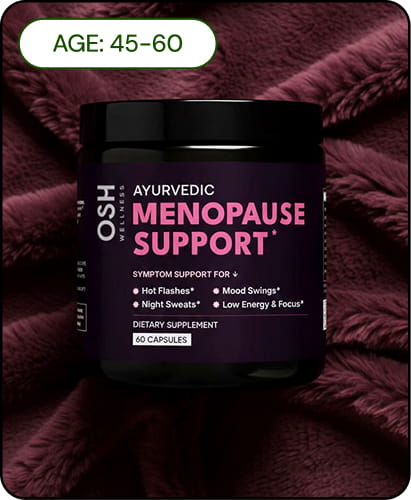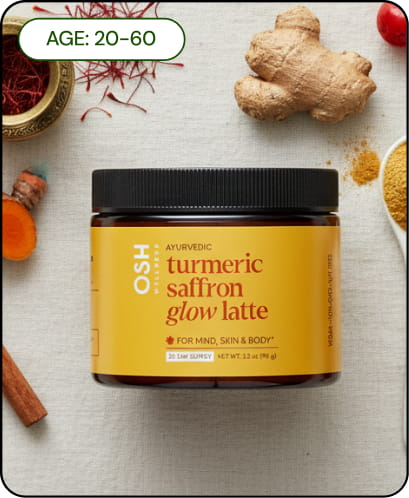Table of contents
In an era marked by unprecedented stress levels, adaptogens like Rhodiola (Rhodiola rosea) and Brahmi (Bacopa monnieri) stand out for their potential to enhance our resilience. These natural substances have roots in centuries-old traditions and are now being validated by modern science. This article explores how Rhodiola and Brahmi interact with the body's stress response mechanisms, particularly through their effects on the hypothalamic-pituitary-adrenal (HPA) axis, and offers guidance on incorporating them into your wellness regimen.
Understanding Adaptogens

Adaptogens are a class of natural substances, typically herbs, roots, and mushrooms, that help the body adjust to stress, maintain balance in physiological functions, and restore homeostasis. Their use is deeply rooted in traditional medicine systems like Ayurveda and Traditional Chinese Medicine (TCM), where they have been employed for centuries to promote vitality and resilience.
To qualify as an adaptogen, a substance must:
Be non-toxic at normal doses
Help the body resist a variety of stressors
Restore physiological balance
The significance of adaptogens has surged due to modern stressors, particularly during events like the COVID-19 pandemic. According to recent reports, nearly half of Americans noted increased stress levels since the pandemic began, fueling interest in natural stress solutions.
Adaptogens such as Rhodiola and ashwagandha are now prominent in wellness culture. Still, organizations like the FDA haven’t officially approved the term "adaptogen" for marketing due to inconsistent clinical data and a lack of standardized efficacy. While many laboratory studies show promising outcomes, human trials are sometimes inconclusive. Therefore, while adaptogens are becoming mainstream in wellness, their status in conventional medicine remains cautious.
Historical Context of Adaptogens

Adaptogens have ancient roots, deeply embedded in traditional medicine systems where stress resilience was a therapeutic priority. The term "adaptogen" may be modern, but the herbs themselves have long been respected.
Rhodiola rosea has a longstanding history in Russia, Scandinavia, and other mountainous regions where it was esteemed for combating fatigue and enhancing endurance. Early Chinese medical texts such as “Shennong Ben Cao Jing” (ca. 220 A.D.) praise its ability to bolster stamina and vitality in harsh environments [1].
Brahmi, referring to both Bacopa monnieri and Centella asiatica, is revered in Ayurvedic medicine and mentioned in the ancient Charaka Samhita. As a Rasayana (rejuvenator) herb, it was used to boost mental performance, relieve anxiety, and support emotional equilibrium [2].
The widespread and enduring use of these herbs illustrates their valuable role in promoting health and balance, bridging historical traditions with modern herbalism [3].
The Science of Adaptogens and the HPA Axis

The human stress response is regulated by the HPA axis, which modulates the production of cortisol, the "stress hormone." Cortisol influences various functions, including metabolism, immune responses, and emotional stability. Prolonged stress disturbs this axis, potentially leading to conditions like anxiety and burnout.
Rhodiola rosea has been found to help normalize cortisol levels and support neurotransmitter balance, including serotonin and dopamine, which contribute to a better mood and stress resilience [4]. Similarly, Brahmi, though less directly impactful on cortisol levels, is known for enhancing cognitive flexibility and reducing anxiety through calming neural influences [5].
These adaptogens work by restoring neuroendocrine function and buffering the physiological effects of stress, which suggests their therapeutic potential in various stress-related conditions.
Exploring Rhodiola's Benefits

Rhodiola rosea has become a recognized adaptogen for stress resilience and fatigue management. In a pivotal clinical trial involving 118 individuals with stress-induced burnout, daily intake of 400 mg Rhodiola extract for 12 weeks significantly improved stress and depression symptoms, with noticeable results as early as the first week [6].
Historically used in regions such as Russia and Scandinavia, Rhodiola remains beneficial in today’s settings for:
Improving mood and reducing anxiety
Boosting physical and mental stamina
Elevating overall well-being
Real-life testimonials and athlete case studies highlight its benefits in performance enhancement and quicker recovery times following intense activity [7]. Additional studies also support Rhodiola’s ability to fight fatigue and enhance work capacity [8].
However, further research is essential to establish safe dosage guidelines and confirm long-term safety, especially for sensitive or vulnerable populations [9].
Brahmi's Cognitive Enhancements

Brahmi (Bacopa monnieri) has substantial clinical backing for its nootropic properties, especially in memory and learning. Clinical trials show improvements in cognitive function, including better word recall and attention, particularly in older adults [10].
Brahmi’s effects stem from:
Promoting hippocampal neuronal regeneration
Inhibiting acetylcholinesterase (increasing acetylcholine)
Enhancing synaptogenesis via bacosides
Its antioxidant activity adds a neuroprotective edge, shielding the brain from oxidative stress, a factor in Alzheimer’s and age-related cognitive decline [11].
Brahmi also supports stress resilience by modulating the HPA axis and shows anxiolytic potential in clinical studies [12]. From students to seniors, users have praised Brahmi for improved focus, memory, and mental clarity.
Comparative Analysis of Rhodiola and Brahmi

While both Rhodiola and Brahmi are celebrated adaptogens, their mechanisms and outcomes differ significantly:
Rhodiola rosea: Primarily influences cortisol levels and boosts physical endurance through ATP synthesis. Its active compound, salidroside, reduces oxidative stress and stabilizes mood by preventing neurotransmitter breakdown [13].
Bacopa monnieri (Brahmi): Focuses on enhancing memory, acetylcholine levels, and synaptic plasticity. Brahmi provides a calming effect without overstimulation, ideal for emotional balance [14].
Using both together can offer synergistic benefits, balancing Rhodiola’s energizing effects with Brahmi’s cognitive and emotional support. For instance, Rhodiola may be more effective during acute stress, whereas Brahmi excels in long-term cognitive support and anxiety reduction [15].
Relevant Products
Osh Wellness offers high-quality adaptogenic supplements like Cycle Care, featuring both Rhodiola and Brahmi. Cycle Care is specifically formulated to support regular periods, stress reduction and cognitive health, ensuring purity and efficacy for everyday use.
Conclusions

Rhodiola and Brahmi represent a potent natural strategy for managing stress and enhancing brain function. Their complementary impact on the HPA axis, cortisol balance, and cognitive integrity highlights their role in contemporary wellness routines.
With ongoing research, these adaptogens continue to offer hope for those seeking natural, holistic solutions to modern life’s challenges. By understanding and applying their unique properties, individuals can foster greater emotional resilience and mental clarity.
FAQs
What are adaptogens and how do they work?
Adaptogens are natural herbs that help the body regulate the HPA axis to better respond to stress.
Can Rhodiola and Brahmi be taken together?
Yes, they complement each other and can enhance stress resilience and cognitive performance.
What are the potential side effects?
They are generally safe but may occasionally cause digestive discomfort.
How long before I feel the effects?
Some users report benefits within days, while others may notice changes over a few weeks.
Are there any contraindications?
Pregnant or breastfeeding individuals and those on medication should consult a healthcare provider.
Sources
1: Herbal Reality - History of Adaptogens
2: Harmony Craft Beverages - The Evolution of Adaptogens
4: National Library of Medicine - Adaptogenic Properties of Rhodiola rosea
5: National Library of Medicine - Bacopa monnieri Review
7: EBSCO - Rhodiola rosea’s Therapeutic Uses
8: Health.com - Rhodiola Benefits
9: Healthline - Rhodiola Rosea
10: Frontiers in Aging Neuroscience - Brahmi and Cognitive Function
11: Viridian Nutrition - How Brahmi Can Benefit the Brain
12: Gavin Publishers - Bacopa Cognitive Skills Study
13: Memorial Sloan Kettering Cancer Center - Rhodiola
14: IJCASE Reports and Images - Bacopa Monnieri Review
15: Lost Empire Herbs - Bacopa vs Rhodiola







